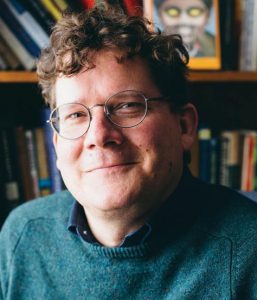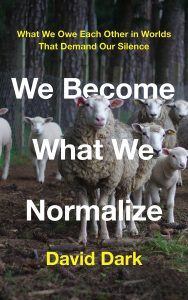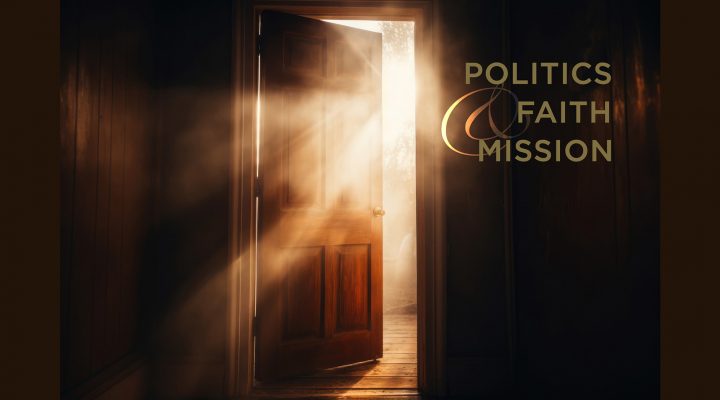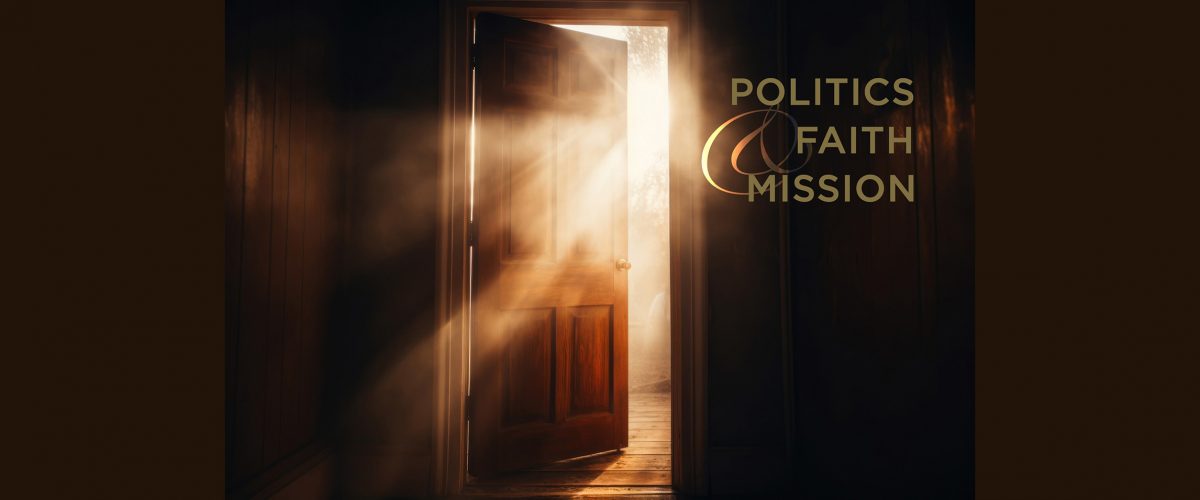David Dark is one of my favorite writers and thinkers, and for years now, I often finish reading him and think, “I wish I’d written that!” A professor of religion and the arts at Belmont University and an authority on the intersections of culture, religion and politics, David is the author of several books, most recently We Become What We Normalize: What We Owe Each Other in Worlds that Demand Our Silence. I’m grateful for the chance to engage David about our present moment by asking him to talk about his fine new book.
Greg Garrett: The title refers to a point you make within the book: “We become what we sit still for, what we play along with, and what we abide even as we hold on to what we have (or think we have).” (You also repeat the phrase, “This is weird, right?”) Can you talk with us about how you’ve seen this play out in our polity and in our culture over the last however many years? Why have people normalized so many things that are weird?

David Dark
David Dark: Conflict avoidance is perhaps, at bottom, a survival strategy that starts early for each of us. There are some amazingly loving parents out there, but most anyone who’s had one has learned early on, in big and small ways, how to behave in such a way that food and shelter and comfort and the occasional show of affection keep right on getting supplied in sufficient measure.
I say all this to say it’s really hard to see and say something when our survival depends on not seeing and saying something. Old habits die hard. To pick one example: My beautiful state of Tennessee has a state government which, thanks to a Republican supermajority, is held captive by white supremacist terror operatives. And worse, they tweet Bible verses. And worse, they’re protected by church organizations that launder their abusive behavior by baptizing it.
I don’t love speaking this way, but I can’t live with myself if I let fear control my sight and speech. If we aren’t careful, conflict avoidance costs us the very possibility of civilization. So many weird things get normalized because the price of saying they’re weird (and inappropriate) feels too high for so many unwilling to risk their positions. The times call for courage. Interpersonal courage as well as civic courage. Maybe all times do.
“So many weird things get normalized because the price of saying they’re weird (and inappropriate) feels too high for so many unwilling to risk their positions.”
GG: LeBron James on more than one occasion spoke up about things happening in the world. Some people were heartened to hear him. Others attacked him. Why did the words of King James matter? How could we respond to and learn from them?
DD: King James speaking up (via tweet) when Jacob Blake was shot in the back seven times in front of his three sons and then handcuffed to his hospital bed while paralyzed lingered with me because it felt like the pulling of a fire alarm. As is the case with so many acts of white supremacist terror and public witnesses to the horror, our awareness of it (or perhaps I should say, many white people’s awareness of it) runs the risk of sinking to the bottom of the internet within days. King James’ determination to be a witness to extrajudicial terror and the cascade of courageous responses that followed struck me as worthy of documentation and study.
The prophetic task, as I understand it, is to dramatize (with words, gestures, drawings, jokes, actions and available forms) the evil we’re otherwise tempted to accept as normal. King James takes it up in his contexts, and I can too.
There are, I confess, incentives aplenty for someone who looks like me not to take up that task. I refer here to whiteness. Let me define it: Whiteness is an investment in the denial of incoming data. It’s also very often a commitment to belittle and deride anyone who dares to question the soundness of that investment. In this sense, whiteness is a crime against my own humanity. I felt called out by King James’ candor and courage and conscience. At my best, feeling called out is the first step and feeling inspired to follow someone else’s moral example.
GG: You use some great phrases in the book as you reflect on white supremacy and white Christian nationalism. “Christofascism” may be my favorite. But one of the elements that has come up in many of my conversations for this series is around the ways Christians (or “Christians” so-called) have unhappily mingled their beliefs. It’s one of the greatest evils besetting the church and the country. What are the remedies for Christofascism? Are there ways to have conversation around these divisive issues?
“The prophetic task, as I understand it, is to dramatize the evil we’re otherwise tempted to accept as normal.”
DD: Most definitely. One person at a time. I have a saying: Christianity, when it isn’t fascism, is a prophetic movement of creative nonviolence to which everyone’s invited. I find this to be a helpful starting point.
Whenever someone drops the word “Christian,” we’re usually free to ask what they mean by that and take it from there. So long as nobody accuses someone else of being divisive for even asking, the door to moral realization remains open. The Barmen Declaration and the Belhar Confession and the AME Church’s Council of Bishops Episcopal Statement (January 31, 2017) remain available to us for distinguishing between Christianities.
The two I have in mind here are the moral movement attested to in those three documents and the one advertised at GodBlessTheUSABible.com. At the risk of being charged with being divisive, I’d like to assert that the latter is antichrist. Can I say that?
 GG: I hope you would! In Sarah McCammon’s new book The Exvangelicals, she called you a sort of pope to all who were trying to reconstruct their faith. On behalf of those who are wondering if there’s anything to salvage from religious traditions that have jettisoned so many of the teachings of Jesus in pursuit of secular power or in conjunction with marginalizing so many of God’s children, what papal wisdom would you offer? How have you personally managed to find a faithful way forward when American Christianity has so often failed the Jesus it professes?
GG: I hope you would! In Sarah McCammon’s new book The Exvangelicals, she called you a sort of pope to all who were trying to reconstruct their faith. On behalf of those who are wondering if there’s anything to salvage from religious traditions that have jettisoned so many of the teachings of Jesus in pursuit of secular power or in conjunction with marginalizing so many of God’s children, what papal wisdom would you offer? How have you personally managed to find a faithful way forward when American Christianity has so often failed the Jesus it professes?
DD: I so appreciate Sarah speaking of me this way in print, and I treasure her work. She, too, is a voice of a candor, courage and conscience. And my goodness, we so need more memoir from those of us who’ve survived and are trying to speak honestly about their experiences of spiritual abuse, the psychic mess of families and friends and support systems still at large.
I think here of David Bazan’s phrase (a song and an album title too): Strange negotiations. I want to claim to have found a faithful way forward. But Sarah and David, it seems to me, are doing the work of beloved community by telling the truth. I think that’s all we’re called to do.
The labels we’re all too prone to mistake for our very selves, our core identities, were of limited value all along. We’ve been here before. When asked when he left the Catholic Church, James Joyce is alleged to have said, “You’d have to ask them.” There’s the institutional enterprise, which is mostly just marketing at this point, and then there’s people being good to each other by being honest and curious and compassionate with themselves and others. That’s beloved community. It’s everywhere.
“Christianity is beloved community except when its not.”
Christianity is beloved community except when its not. You’ll know us by our fruit. Same as it ever was.
GG: You and I both hold a similar belief, although I’ve never said it as you do in the book: “When it’s righteous, pop culture eats ugly policy for breakfast.” Great and powerful art shapes us and shakes us, it reveals the truth, and I was delighted to find everyone from Marvin Gaye to Mary Oliver to Marian Anderson referred to in the book. Could you share a little of your theory about what the arts have to teach us, and maybe some of the things you’re reading, listening to, or watching that are — to quote another beauty in the book — preparing your heart for justice?
DD: Gladly. And thank you for characterizing pop culture as art. This is the way. And yes, art appeals to the feeling function. Art gives us permission to feel. Or rather, art gives us permission to feel what we already feel.
Everyone, and I do mean everyone, is full of feelings. Perhaps equally full of feelings. I say this because, as I see it, everyone feels as much as everyone else, but not all of us are accessing healthy ways of allowing our feelings to surface. Art invites us toward this. Everyone’s invited to art. Art calls us out, our whole creative selves, into empathy, feeling and loving and knowing anew. When our whole selves surface creatively and nonviolently, we’re drawn away from self-destructive (and others-destructive and the-humanly-inhabitable-world-destructive) behaviors. We’re drawn out by the beautiful and true (or beautiful because true) in art in all its forms: image, sound, language, song, story. We are story-telling and story-dwelling creatures.
The dwelling part is why beauty (in and around and among us) prepares the heart for justice. I listen to Prince and Radiohead and binge-watch series like Sex Education and Steven Universe and Midnight Mass, and read Toni Morrison and John Le Carre to know the joy of trying to dwell in truth and beauty. I draw courage and inspiration from those who tell the truth whatever the form.
“We are free to change the world,” Hannah Arendt tells us. I believe this is accomplished through feats of attentiveness among human beings. I study the feats of attentiveness of others to figure out how to stage my own many times a day.
One more recommendation, if I may, Adrianne Lenker of Big Thief. Please listen to “Free Treasure” off her new album Bright Future. It makes everything better.

Greg Garrett
Greg Garrett teaches creative writing, film, literature and theology classes at Baylor University. He is the author of two dozen books of fiction, nonfiction, memoir and translation, including the critically acclaimed novels Free Bird, Cycling, Shame and The Prodigal. His latest novel is Bastille Day. He is one of America’s leading voices on religion and culture. Two of his recent nonfiction books are In Conversation: Rowan Williams and Greg Garrett and A Long, Long Way: Hollywood’s Unfinished Journey from Racism to Reconciliation. He is a seminary-trained lay preacher in the Episcopal Church. He lives in Austin with his wife, Jeanie, and their two daughters.
More from this series:


